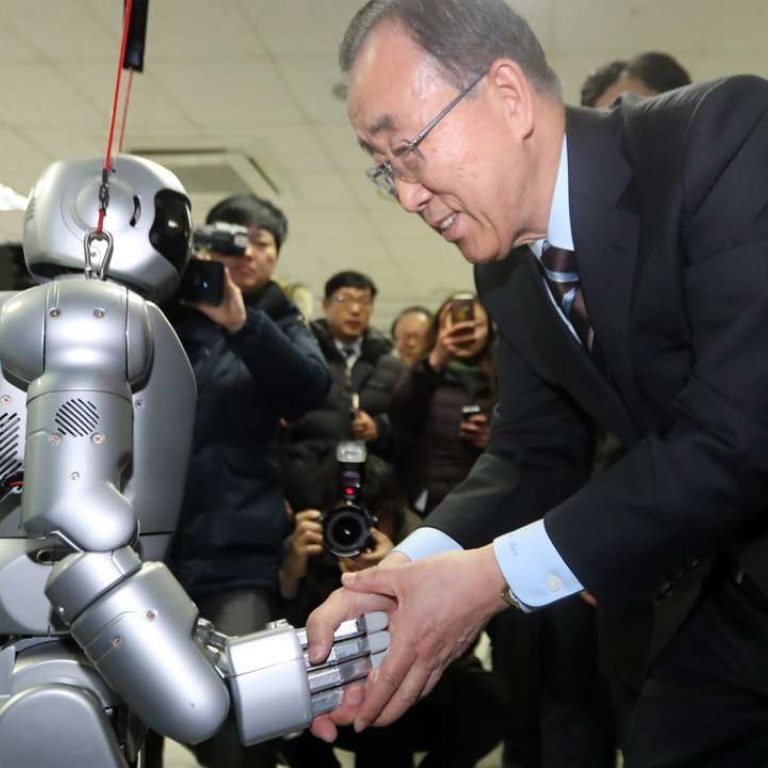
South Korea’s IT sector split on a ‘robot tax’ to save jobs
While some say a tax is necessary, others say it requires thorough review and should be put on hold
By Lee Min-hyung
With Microsoft co-founder Bill Gates proposing a “robot tax,” disputes are intensifying over whether the new taxation scheme will come at the cost of human labour.
The U.S. business tycoon called for the tax last month, underlining the raised funds from robots can be reinvested to train manpower for irreplaceable jobs such as in the medical and education sectors.
The idea, however, is raising concerns at the same time, as the robot tax may slow down companies’ investment appetite and hold back innovation.
South Korea’s IT industry also remains poles apart over the controversial proposal.
“We need to collect taxes from robots, as they are manufacturing products and making money just like human beings do,” an engineer at LG Group said. “Automation is an unavoidable trend in any given industry. One day, robots will replace most of our jobs like drones killing delivery jobs.”
Companies especially in manufacturing industries will not welcome the idea, but the ongoing robot-driven automation is speeding up its penetration into our lives and replaces jobs as well as detailed roles of labour force, according to him.
“If we can collect more taxes that can be redirected to help improve our lives, this is a good idea,” he said.
However, another official at the IT industry opposed its implementation for the time being, as it requires thorough reviews over how to devise different taxation methods for each robot.
“It is too early for us to implement the robot tax, as we need to set a specific taxation standard for hundreds of thousands of different robot types.”
“Let’s say there are hundreds of robots in a car factory,” said the official. “Each robot manufactures different parts of a vehicle, and it is very tough to calculate which robots are more productive and should be levied with heavier taxes.”
The official added the purpose of the robot tax sounds stunning and comes with expectations that can benefit our lives, but it is ironing out details over its implementation will not happen overnight.
“Things are even more complicated once we include robots in the software industry for the idea,” she said.
Korea has yet to discuss specific legal measures over whether to introduce the robot tax, but the new proposal is talk of the IT and political town in Europe and the United States.
Benoit Hamon, a presidential candidate for France’s election this year, has welcomed the idea of a robot tax as a means to offer minimum income for all the people there.

